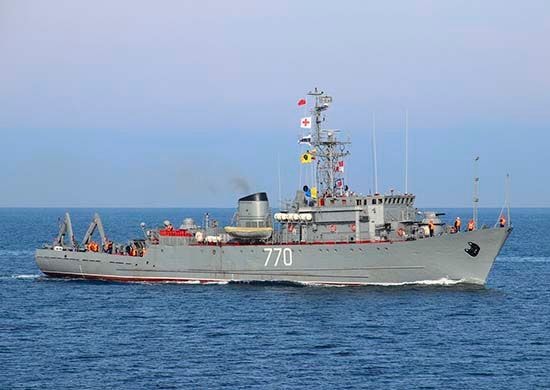
Nuclear weapons
News Feed
Russia's nuclear giant controls massive weapons production ecosystem ignored by sanctions, report finds
Rosatom, Russia's state nuclear corporation, operates 21 entities that are directly involved in weapons production but face no EU sanctions, according to a report published March 4 by the Kyiv-based think tank DiXi Group.

Putin threatens to cut Russian gas to Europe unless EU reverses ban, leveraging Iran war
As the U.S.-Iran war disrupts global energy markets, the Russian president is brainstorming ways to strong-arm the EU into rethinking its ban on Russian LNG and pipeline gas.

Putin releases 2 Hungarians captured fighting for Ukraine after Szijjarto talks
Ukraine's Foreign Ministry has called the move a "cynical" PR stunt and summoned Hungary's charge d'affaires for more information on the released prisoners.

Ukraine war latest: 3 Russian ships hit, 3 sailors killed in Ukrainian strike on Black Sea port, SBU source says
Key developments on March 4: * 3 Russian ships hit, 3 sailors killed in Ukrainian strike on Black Sea port, SBU source says * Russia continues to escalate drone attacks on passenger trains, railway infrastructure * Putin increases Russia's regular army personnel to nearly 2.4 million * Russian tanker on fire in Mediterranean Sea, Moscow accuses Ukraine of sea drone attack Ukrainian forces struck the Russian port of Novorossiysk, hitting the minesweeper Valentin Pikul and "severely" damagin

Exclusive: Inside Ukrainian skeleton racer's disqualification from Olympics
The Kyiv Independent’s Kateryna Hodunova speaks with Ukrainian skeleton racer Vladyslav Heraskevych, who was disqualified from the Olympic Games for wearing a helmet honoring 24 Ukrainian athletes killed in Russia’s war.

'Bratislava shooting itself in the foot,' says Kyiv, as Slovakia walks away from emergency electricity imports to Ukraine
"Ukraine purchases the electricity and does not receive it for free. So the Fico government will simply deprive Slovak companies of earnings, while Ukraine will receive this electricity from other sources," Foreign Ministry spokesperson Heorhiy Tykhyi told the Kyiv Independent.

Most Popular
As markets opened on March 2, Russian officials were quick to frame the escalating Middle East crisis as an economic opportunity for the Kremlin. Within hours of the first U.S. and Israeli strikes, Russian Envoy Kirill Dmitriev quickly posted on X about crude potentially hitting "$100+" per barrel. Brent crude futures on the London ICE exchange initially had risen 13.04%, peaking at $82.37 per barrel — the highest level in over a year. Prices later eased to $79.38. The spike followed Iran's M



















